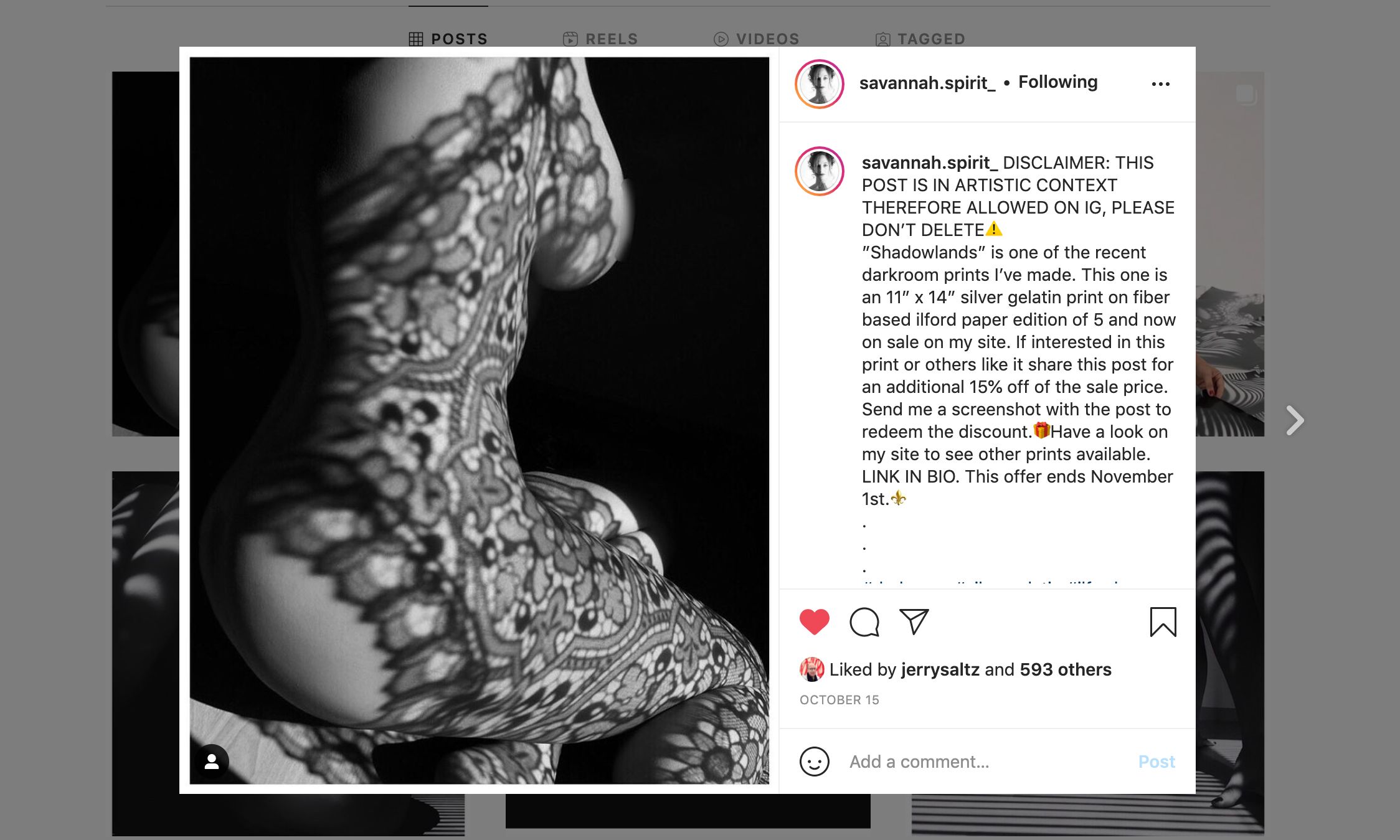Savannah Spirit is a curator for the Dont Delete Art campaign, which partners with the National Coalition Against Censorship among others to showcase art censored on social media Courtesy of Savannah Spirit
The Vienna Tourist Board announced in late September that it had moved their “explicit” content to OnlyFans. There, for a fee, viewers can access the art from Austria's museum collections that Instagram has censored or would probably censor if it was posted. The account thus far stars a male-only cast of famous artists including Schiele, Modigliani and Titian, along with antiquities. A promotional video proclaims: “Vienna strips on OnlyFans”.
News of this move made waves with artists who are regularly censored on Instagram. Long-wearied in their battles against the "Community Guidelines", artists rejoiced and proclaimed this an opening shot aimed at Instagram’s censorship practices. Finally, it seemed that institutions would stand up to support beleaguered artists. But in the subsequent weeks, Vienna has stood practically alone.
It is rather poetic that Vienna would take this stand. Art censorship in the name of “protecting the community” is not new. Some of the artists now moved to Only Fans were among those considered “degenerate artists” by the Nazis in 1937, whose work was not just censored but also mocked and destroyed. While the Nazis made a public spectacle over what they considered obscene, Instagram takes a subtler route. On Instagram an artist’s work is silently removed, leaving them with professional anxiety and little ability to appeal.
Instagram’s guidelines are especially fixated on the female-presenting body, made most obvious by their specific exclusion of the “female nipple”. This alone makes a female-presenting body twice as likely as a male-presenting body to be flagged, and artists along with advocates of all kinds are censored as a result.
In response, those affected have created resistance projects such as the online platforms Don’t Delete Art and Lips.Social, as well as books and exhibitions. While these efforts give some support to artists, there is still no alternative to the exposure Instagram provides.
Artistic success is no mitigator of censorship. Following Carolee Schneemann’s death in 2019, many tribute posts were famously removed by Instagram. This year, Lisa Yuskavage announced she was leaving the platform over continued censorship of her paintings, and Betty Tompkins is continually battling censorship of her internationally renowned work.
If these groundbreaking artists who are represented by some of the most influential galleries are denied the ability to share their work, the struggle by artists who don’t have the same support is far greater.
Artists on Instagram are the canary in the coal mine for more than just art censorship, but specifically censorship of women artists. As the “Vienna strips on Only Fans” video makes clear, female-presenting bodies are more likely to be considered “explicit” according to Instagram’s guidelines. This means that artists who try to change the perception of the female-presenting body—such as Schneemann, Tompkins and Yuskavage—will continue to be censored regardless of their intentions.
Vienna turning to OnlyFans should not only highlight the hypocrisy of Instagram’s de facto role as arbiter of valid art—more institutions and galleries ought to be fighting for contemporary artists with the same passion that Vienna is fighting for long-dead ones.
Emma Shapiro is an American visual artist and body equality activist based in Valencia, Spain

